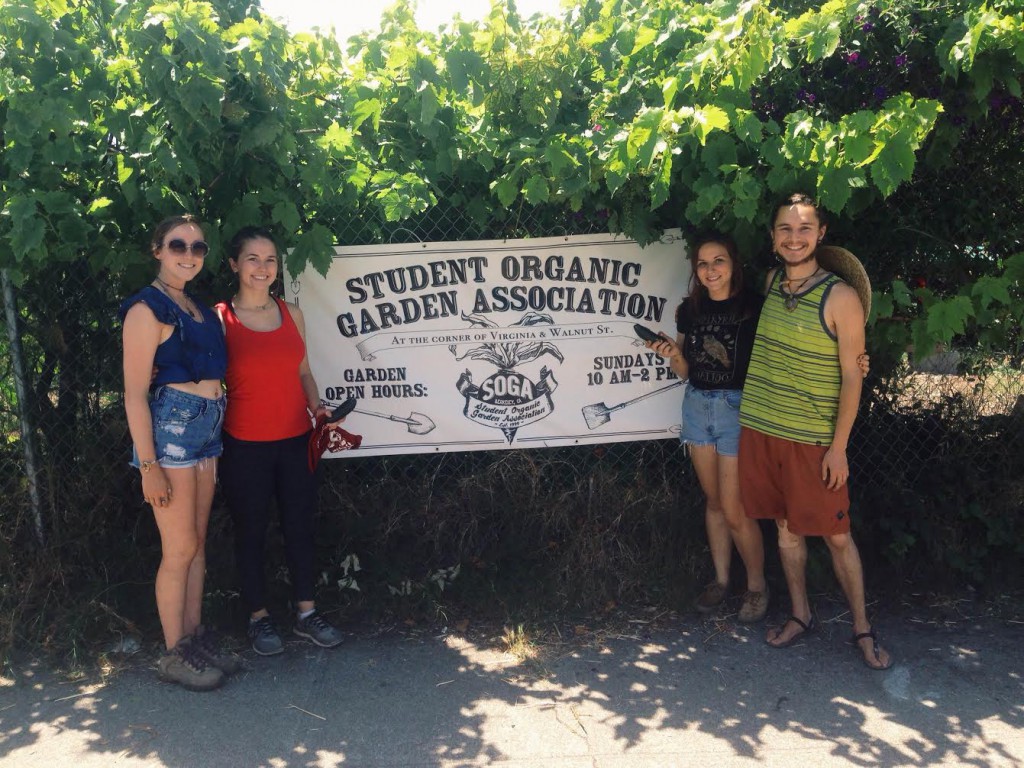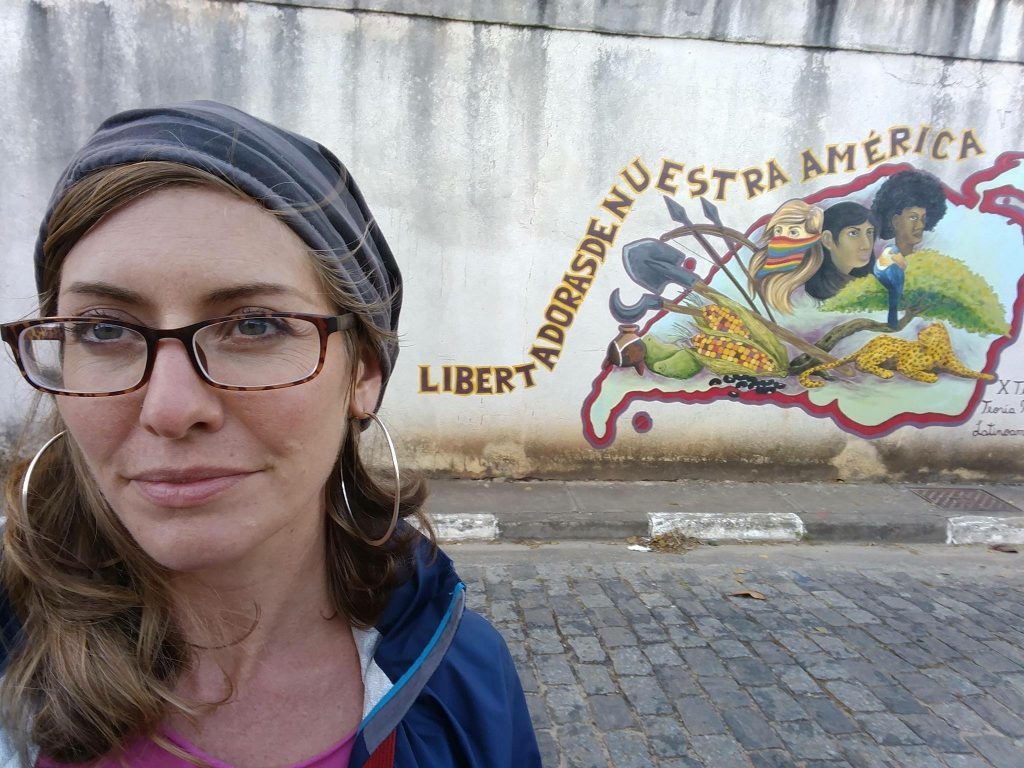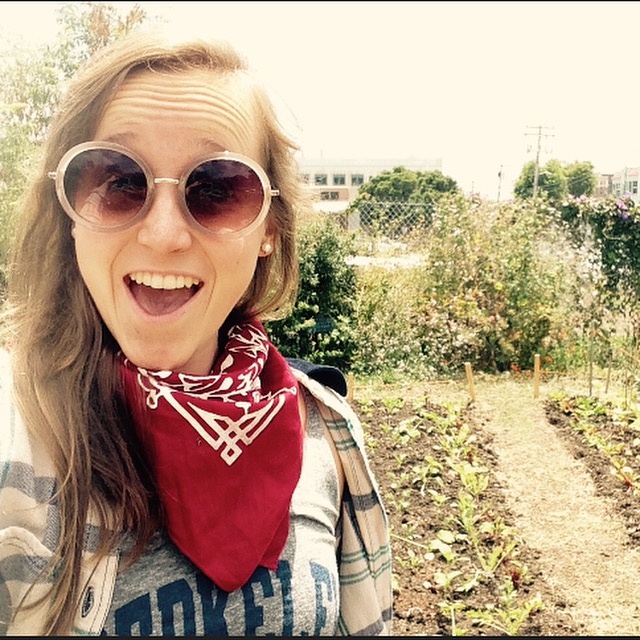It is undeniable that alternative food production, specifically urban organic agriculture, applies a veil of ignorance when it comes to providing equitable freedom, opportunity, and education to members of marginalized communities, such as POC (peoples of color), LGBTQ+ (lesbian, trans, bi-sexual, trans, queer, non-binary, intersex, asexual, pansexual, etc.), and Disabled peoples (including Cal’s Disabled Student’s Program (DSP) students). Objectively, urban organic farming has always been credited as a frontline food justice movement (FJM) that supports sustainability, food sovereignty, income stability, and health rights. Yet subjectively, this promising movement has also been noted to hold wide gaps and struggles for unity in diversity within food justice organizations’ (FJO) in terms of representing frontline residents, organizational challenges on mobilizing around food justice, and limitations to developing FJM in addressing immediate needs versus structural roots.
West Oakland’s People’s Grocery is a prime example of these structural challenges to the FJM overall, where the ideological differences in framing and commitments to PG’s anti-oppression arose in the mobilization around FJ and representation of target local residents, who are disproportionately affected by FJ issues. Pointing out that having different perspectives of FJO activists, whom all want differing outcomes in an FJO, is the downfall to many FJ efforts that largely go ignored, mainly due to oppressors assuming power inside FJOs (Sbicca, 2012). This same questioning of organizational ethics and theories of change inside major FJM’s can be applied to SOGA as well.
SOGA is a space that has immense power and privilege to become a healing space for POC, LGBTQ, and DSP folks, but historically chose to operate within a white, ablest, upper-class agenda that profits off POC labor and the ceiling of productivity. Although the organization is framed to democratic student association with agro-ecological value systems, SOGA has been contributing to major environmental justice issues such as inequitable land distribution, food insecurity, and segregation. Historically, SOGA’s constitution is seemingly transparent and non-discriminatory when meeting the public eye; however, the FJO’s ethics and theories of change in FJ haven’t been easily defined.
Although the organization is framed to democratic student association with agro-ecological value systems, SOGA has been contributing to major environmental justice issues such as inequitable land distribution, food insecurity, and segregation for many years. Mainly financed by UCB-affiliated grants and stewardships, SOGA has been measuring productivity technically through its amounts of funding and mitigating power inside the organization through self-selection progresses, where those responsible for these financial rewards are elected as management officials, making up a majority of Caucasians (Bitten, 2018). Propped up by white leadership, SOGA has brought zero visibility for management positions or membership outreach in their respective communities, where white middle-class student activists with good intentions of FJ efforts asserted their white privilege and ultimately, missed out on fundamental FJ issues in actually existing East Bay racial projects. Such historic racial projects include genocide, colonialism, redlining, food desertification, superfund sites, public space segregation, public education elitism, and gentrification within the Berkeley/West Oakland/East Oakland/SF areas.
The way SOGA managers have been using their white privileges to ignore the basic needs of its community members, as well as the marginalized communities encompassing SOGA lands, is extremely present through the current polluting of the democratic organization today. Previous members have expressed a call for new management and restructuring of SOGA, but have been met with intolerance and disregard for the basic needs of POC, LGBTQ, and DSP folks when it comes to having an inclusive safe space and access to land and its fruit (Bitten, 2018). This has created a recent state of disorganization within the years of 2018-2019, and the history of SOGA’s inclusion and intersectionality has been rightfully questioned.
Even though funding and DeCal classes have been cut in Spring/Summer 2019, the use of fruit and land has been sustained by BI-POC, LGBTQ+, and DSP members of Black Earth Farms, Oxford Tract, Gill Tract, Hermanos Unidos, and Fannie Lou Black Resource Center Garden, and many other ally groups, who all practice ecological horticulture and knowledge, continuing to maintain the space despite being subjected to white elitism and segregation of the natural resources available.
Coming into 2019, SOGA aims to lift this veil of ignorance placed by previous garden managers by acknowledging this lack of inclusion and intersectionality, and call for a new restoration of the student-led public garden space. To ensure that SOGA stays in the hands of Cal student leadership, we aim to provide a transparent and non-discriminatory urban garden space open to not just Cal students, but Bay-area residents alike, who aim to become leaders of environmental justice, agro-ecology, seed rights, usufruct land rights, food sovereignty and education, and systematic inclusion of every social strata. We want to remove the institutional, historical, and eco-social barriers inside our FJO and de-colonize the neglected and stolen urbanized space for FJ.
To do so, SOGA must practice the principles of distributive justice, where the logic of public good is taken over the logic of capital (grants/funding), and theories of productivity and change must be seen as a social construct, as we should focus on providing community support and coalition-building throughout all marginalized communities with little to no resources (Altieri, 1999). SOGA aims to provide justice in forms of equitable distribution of natural resources (land, food, water, seed rights), recognition of student power dynamics by establishing more committees, and transparent, non-discriminatory procedures within management, intentional outreach to marginalized communities, and broader systems for involvement that prioritize BI-POC, LGBTQ+, DSP membership.
To read more in-depth about SOGA’s history of inclusion & intersectionality, please visit SOGA’s Demography page.




